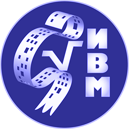Title: Russian-Chinese School on Mathematical Modeling and Parallel Computing.
Dates: 22-25 September, 2020
Time: every day 9-13 (Moscow time), 14-18 (Beijing time), no lunch break
Audience: master students (mainly). Practical course will be on a parallel cluster in Moscow. Organizational issues will be solved similarly to the 1st Russian-Chinese School in January, 2019
| September 22 | Basics of mathematical modeling and numerical methods (4 hours) The course addresses the basic types of mathematical models stated in terms of ordinary differential equations (ODE) and partial differential equations (PDE). For each mathematical model with important applications we consider the model origin and the numerical implementation. The models are ranged according to the type of basic differential equation (ODE, hyperbolic, elliptic and parabolic equations). |
| September 23 | Basics of parallel computing (4 hours) In this short course, I will first give a very quick overview of the extensive and broad topic of parallel computing, including what’s parallel computing and computer, why and how to use parallel computing, and the history and state-of-art of supercomputers. And then give a short introduction of the parallel programming language MPI. This course is intended for someone who is just becoming acquainted with the parallel computing and It is not intended to cover parallel programming in depth, as this would require significantly more time. |
| September 24 | Introduction to Supercomputing (4 hours) The course “Introduction to Supercomputing” considers the parallel efficiency of linear algebra algorithms for shared and distributed memory computers. The usage of OpenMP for parallelism within a (multi-core) node as well as MPI for parallelism between nodes are investigated within the course. “Introduction to Supercomputing” highlights the technology of the theoretical estimation of algorithms’ parallel efficiency. As a practical part, the numerical experiments with the considered algorithms on the INM RAS cluster will be presented. |
| September 25 | Applied statistics (4 hours) Applied Statistics is designed for research students who need to design experiments and carry out statistical analysis of their data. This course will mainly focus on basic introduction of statistical concepts (lectures) and statistical applications (practice). The topics includes statistical distributions, hypothesis testing, and linear regression model. R program will be used for practice (install R on your own laptop is optional). |
- 2020-09-22 09:00:00
- 2020-09-22 13:00:00

